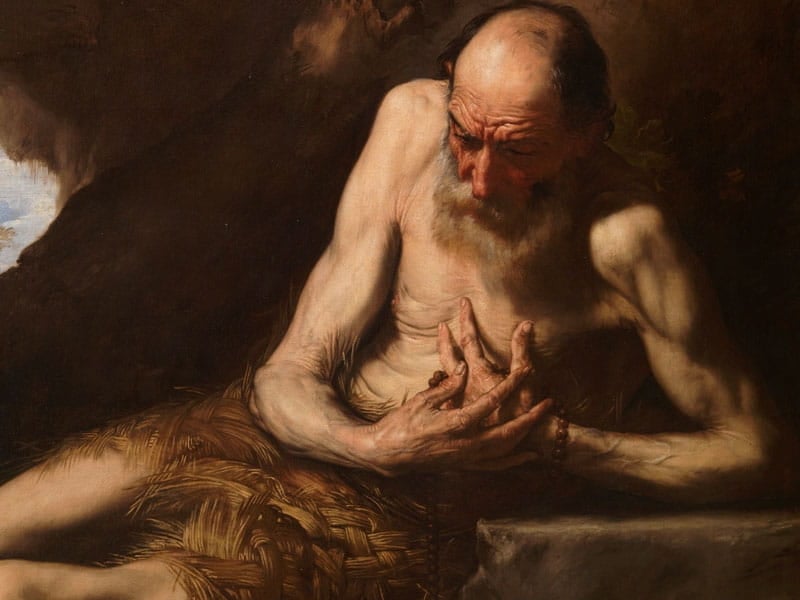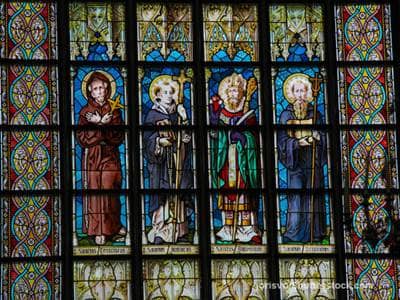St. Paul the Hermit (c. 233-345)

It is unclear what we really know of Paul's life, how much is fable, how much fact.
Paul was reportedly born in Egypt, where he was orphaned by age 15. He was also a learned and devout young man. During the persecution of Decius in Egypt in the year 250, Paul was forced to hide in the home of a friend. Fearing a brother-in-law would betray him, he fled in a cave in the desert. His plan was to return once the persecution ended, but the sweetness of solitude and heavenly contemplation convinced him to stay.
He went on to live in that cave for the next 90 years. A nearby spring gave him drink, a palm tree furnished him clothing and nourishment. After 21 years of solitude a bird began bringing him half of a loaf of bread each day. Without knowing what was happening in the world, Paul prayed that the world would become a better place.
St. Anthony attests to his holy life and death. Tempted by the thought that no one had served God in the wilderness longer than he, Anthony was led by God to find Paul and acknowledge him as a man more perfect than himself. The raven that day brought a whole loaf of bread instead of the usual half. As Paul predicted, Anthony would return to bury his new friend.
Thought to have been about 112 when he died, Paul is known as the "First Hermit." His feast day is celebrated in the East; he is also commemorated in the Coptic and Armenian rites of the Mass.
-
St. Adrian of Canterbury (d. 710)
-
Sts. John Jones and John Wall (c. 1530-1598; 1620-1679)
-
Blessed Emmanuel Ruiz and Companions (1804-1860)
-
St. Bonaventure (1221-1274)
-
Sts. Pontian and Hippolytus (d. 235)
-
Blessed Adolph Kolping (1813-1865)
-
St. Agatha (d. 251?)
-
Our Lady of Mount Carmel
-
Assumption of Mary
-
St. Anthony of Padua (1195-1231)


